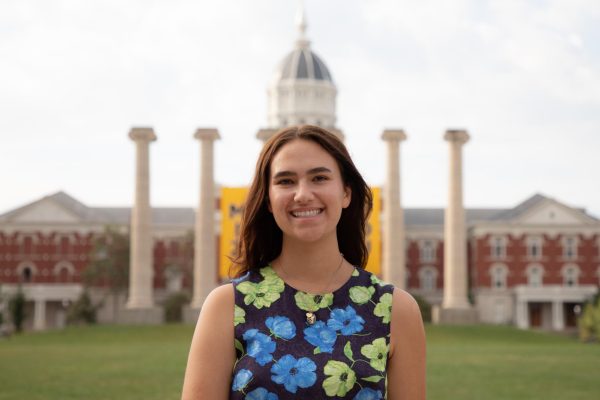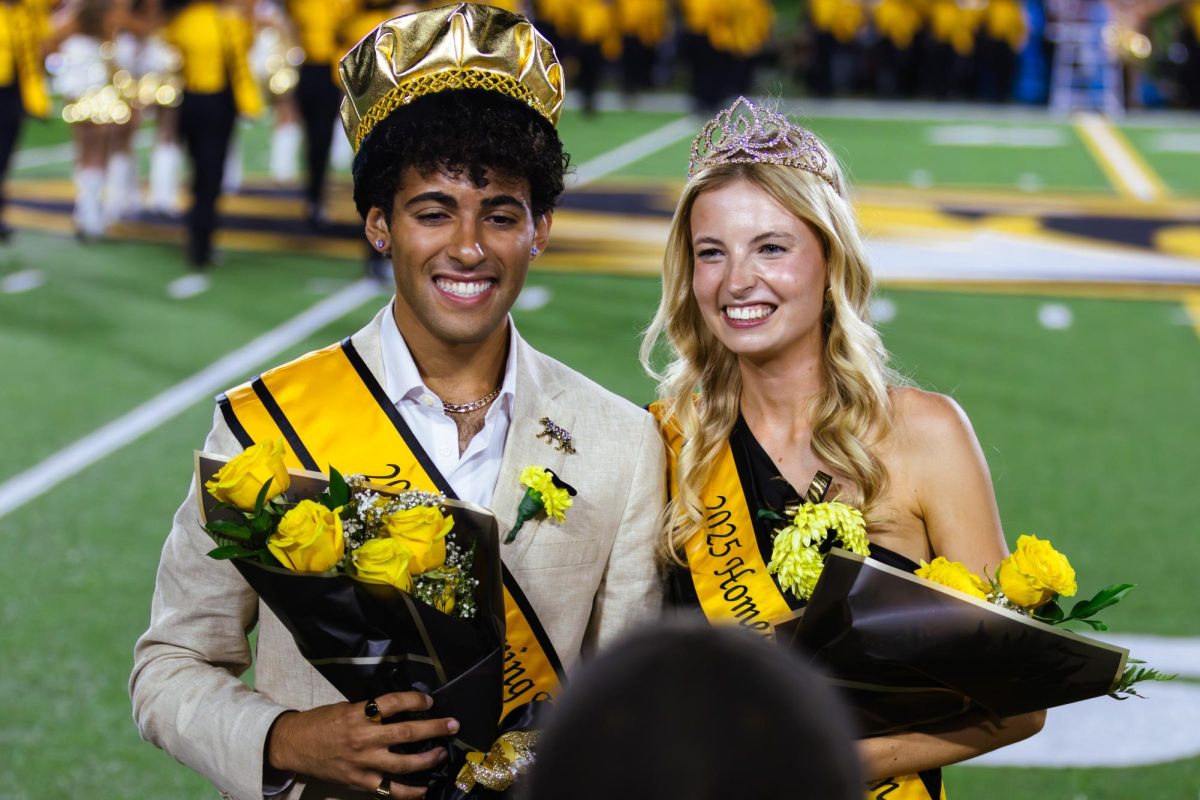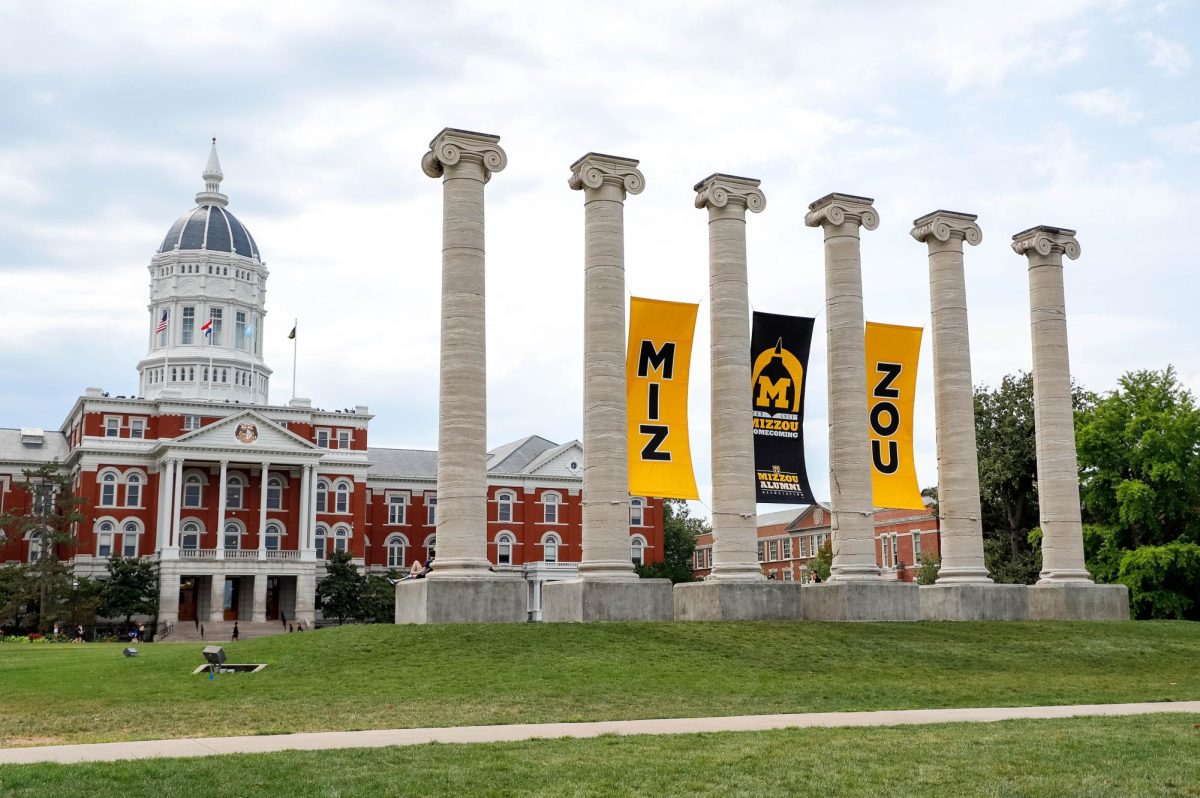Here are both candidates’ stances on abortion, transgender issues, and loan forgiveness.
Need to know how to vote? Go here!
Missouri residents will be able to vote for the next attorney general on Nov. 5, 2024, with incumbent Andrew Bailey, R-Mo. and hopeful Elad Gross, D-Mo. both vying for the position.
Bailey was appointed by Gov. Mike Parson in November of 2022 after his predecessor Eric Schmitt was elected into the U.S. Senate. Bailey graduated from the University of Missouri School of Law after serving in the army. He began his career as a prosecutor investigating violent crimes and later became one of Missouri’s assistant attorney generals.
Bailey’s opponent is Democratic nominee Elad Gross, a Washington University School of Law alum who acted as an assistant attorney general under Chris Koster, D-Mo. until 2016. As an undergraduate student at Duke University, Gross started a nonprofit called Education Exchange Corps which sought to increase civic engagement in St. Louis.
Abortion
Attorney General Bailey supports Missouri’s near-total abortion ban, which allows abortion only in case of medical emergency.
“My office will continue to use every tool at its disposal to protect the unborn,” Bailey said in a press release after his motion to dismiss a group of religious leaders’ lawsuit against the abortion ban was approved.
In February, Bailey filed a lawsuit against Planned Parenthood Great Plains. This lawsuit included evidence from an investigative journalist who recorded a conversation at the clinic. In the video, the journalist requested information on how to get an abortion for his niece without parental consent. The supposed niece was fabricated to get information.
“The investigation revealed that Planned Parenthood removes minors from school using altered doctors’ notes, transports them into Kansas for abortions, and then quickly returns them—all to avoid the legal requirement to obtain parental consent,” Bailey’s team said in a press release after the filing.
Gross has said that he would protect Amendment 3 — a proposed amendment that would repeal Missouri’s total-abortion ban, reduce government interference in most decisions about abortion and reproductive healthcare, and restrict abortions when a fetus is visible if it is a non-emergent situation— if it is voted into law in November. Gross also intends to improve reproductive healthcare by enforcing Missouri’s consumer protections, which makes deceiving a consumer when selling a product or service illegal.
“We deserve to have really good health care, and that’s a huge problem in Missouri,” Gross said. “I think that the attorney general is in the best position to investigate why that’s going on [and] go after a health insurance company problem, health care provider, whatever that might be.”
Transgender Rights
Bailey has been outspoken in his opposition of transgender people, specifically student athletes. Back in 2020, Bailey filed an amicus brief with 22 other states for a lawsuit against the Connecticut Interscholastic Athletic Conference (CIAC), multiple school boards and two transgender student athletes.
His amicus brief contributed to a lawsuit that argued the CIAC had violated Title IX by allowing transgender women to compete in high school track competitions with cisgender women.
“It is outrageous that women are being forced to compete against biological males for the sake of ‘inclusivity,’” Bailey said in a press release following this filing. “My office will use every legal mechanism available to defend women’s sports.”
Bailey’s amicus brief is a common way for uninvolved groups in a lawsuit to weigh in on court decisions and give opinions on how judges should rule.
In May during a Missouri Attorney General Town Hall debate with Bailey and now eliminated republican candidate Will Scharf, Gross critiqued Missouri lawmakers’ focus on transgender issues.
“We spent all of that time talking about this issue instead of suing scammers or protecting our health care rights or all these other things,” Gross said. “There’s a reason that this issue is coming up. It’s because it’s divisive and they’re bringing it to this state to divide us against each other instead of us looking at our leadership and the crap that they’re not doing for us.”
Loan Forgiveness
Bailey has filed multiple lawsuits against President Joe Biden’s loan forgiveness plans, which seek to cut debt for borrowers using the Department of Education and decrease monthly loan payments, blocking the president’s first and second plans and attempting to stop his third.
“There is no such thing as canceling a debt- there is only shifting who will bear its weight,” Bailey said in a press release. This statement followed a U.S. Supreme Court hearing on his case against Biden’s debt forgiveness.
Bailey’s first and second filings against Biden’s Saving on a Valuable Education plan succeeded and placed an injunction on the rollout of these funds. The Biden administration has since tried a third, which Bailey has obtained a restraining order for.
In an interview with KDSK’s Mark Maxwell, Gross said that he would not continue with Bailey’s plan of attack.
“I don’t think that these lawsuits that he’s filing on the student debt makes very much sense,” Gross said.
For Gross, the issue is with standing, or the ability for a lawsuit to be filed. According to Gross, one of the groups mentioned, the Missouri Higher Education Loan Authority, did not want to be included in Bailey’s lawsuits.
There are other lawsuits against the U.S. government that he would consider such as requesting the federal government to clean up remnants of the Manhattan Project in Missouri.
“They discovered that since 1949 at the very least, the federal government knew that they were poisoning Missouri families,” Gross said. “They didn’t want to tell anyone, and now we have these cancer clusters. We have so many families that have been so dramatically impacted by the federal government lying to the American people, and specifically to Missourians.”
Much like his position on many of Bailey’s current lawsuits, Gross feels too many attorney general resources are being spent fighting against Biden’s plans.
“For us to be putting so many resources into [these lawsuits] when our Attorney General’s office isn’t testing rape kits right now at the level that they used to and isn’t doing the basic functions they were supposed to do to protect families,” Gross said. “So I certainly would refocus the office’s efforts on actually serving Missourians, making sure our lives are better as a result of that.”
Ryan Munro is the third candidate running as the libertarian party’s choice. He is a family litigation attorney, counselor, an advocate for personal freedom and the removal of government from property and privacy. Munro is running a zero-donation campaign to try and curb “corruption” from out-of-state donors.
“I decided to not take any donations. Your money should stay where it is most needed, and that is your wallet,” Munro said on his campaign website.
More information on Munro’s platforms can be found at munro4mo.com.
For Missouri residents, votes must be cast in person between 6 a.m. and 7 p.m. on Election Day. Absentee voters must be registered by Oct. 9 and have their ballots received by Oct. 23.
Edited by Eric Hughes | [email protected]
Copyedited by Hannah Taylor | [email protected]
Edited by Emilia Hansen | [email protected]
Edited by Emily Skidmore | [email protected]








